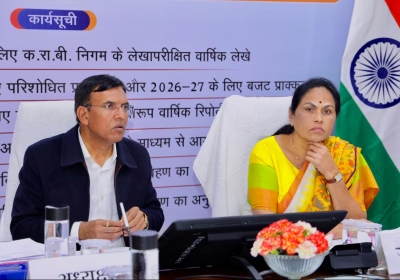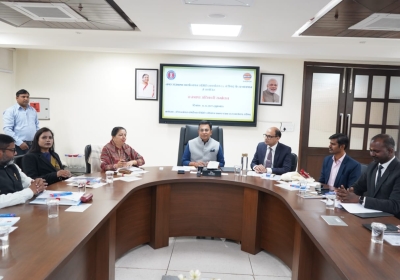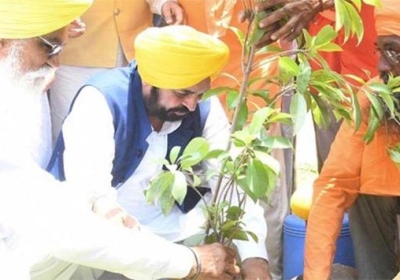.png)
after witnessing a sequence of hate speeches against Muslims calling for murder and assassination
Top Indian diplomats summoned by Pakistan, Anti-Semitic remarks made during the 'Dharam Sansad’
The Pakistani Ministry of Foreign Affairs called India's highest level at the Islamabad High Commission on Monday after witnessing a sequence of hate speeches against Muslims calling for murder and assassination during the "Dharam Sansad" held in Haridwar. This was an uncommon action. Diplomats approached him with their "serious concerns," and he agreed.
The Pakistani Ministry said in an official statement, “Today, the Indian Charge d’ Affaires was summoned to the Ministry of Foreign Affairs, Islamabad and asked to convey the Government of Pakistan’s serious concerns to the Government of India over the widely reported open calls by Hindutva proponents for carrying out genocide of Indian Muslims.”
Although the Ministry of Foreign Affairs frequently makes critical remarks, it is uncommon for Indian ambassadors to be summoned in connection with events involving the Indian minority.
In reality, in the past, India was the one who made repeated critical remarks about Pakistan's crimes against Hindus and Sikhs, as well as summoning Pakistan's diplomats—most recently in August, to protest about the Punjab rural Lahingya.
On Monday afternoon, Pakistani officials summoned India's charge d'affaires, M Suresh Kumar.
While foreign ministries frequently make critical remarks, recalling Indian diplomats to discuss situations involving minorities in India is uncommon.
In truth, India has frequently made critical remarks and summoned Pakistan's embassies in response to crimes against Hindus and Sikhs in Pakistan, most recently in August to denounce the attack on a Hindu temple in Pakistan's rural Rahim Yar Khan province.
"Hindus to take up weapons" to ensure that a "Muslim did not become Prime Minister in 2029" at the Haridwar event, which took place from December 17 to 19.
The controversial Yati Narsinghanand, the priest of Dasna temple in Ghaziabad who is facing several FIRs in UP, called for a "war against Muslims."
Three people have been arrested as a result of the hate remarks, which sparked widespread indignation. The FIR mentioned Swami Dharamdas and Sadhvi Annapurna, as well as Waseem Rizvi, who converted to Hinduism and adopted the name Jitendra Narayan Singh Tyagi.
Section 153A of the Indian Penal Code (IPC) has been used to file the FIR.
“Grave concern by civil society and cross-section of the people of Pakistan and around the world,” the Indian side has been informed that the alleged hate statements have been examined with concern, according to the statement.
Pakistan has stated that it expects India to examine these hate speeches and take steps to prevent such incidents.“toxic narrative against minorities, particularly Muslims…has become a norm.”
The Pakistani Ministry of Foreign Affairs called India's highest level at the Islamabad High Commission on Monday after witnessing a sequence of hate speeches against Muslims calling for murder and assassination during the "Dharam Sansad" held in Haridwar. This was an uncommon action. Diplomats approached him with their "serious concerns," and he agreed.
The Pakistani Ministry said in an official statement, “Today, the Indian Charge d’ Affaires was summoned to the Ministry of Foreign Affairs, Islamabad and asked to convey the Government of Pakistan’s serious concerns to the Government of India over the widely reported open calls by Hindutva proponents for carrying out genocide of Indian Muslims.”
Although the Ministry of Foreign Affairs frequently makes critical remarks, it is uncommon for Indian ambassadors to be summoned in connection with events involving the Indian minority.
In reality, in the past, India was the one who made repeated critical remarks about Pakistan's crimes against Hindus and Sikhs, as well as summoning Pakistan's diplomats—most recently in August, to protest about the Punjab rural Lahingya.
On Monday afternoon, Pakistani officials summoned India's charge d'affaires, M Suresh Kumar.
While foreign ministries frequently make critical remarks, recalling Indian diplomats to discuss situations involving minorities in India is uncommon.
In truth, India has frequently made critical remarks and summoned Pakistan's embassies in response to crimes against Hindus and Sikhs in Pakistan, most recently in August to denounce the attack on a Hindu temple in Pakistan's rural Rahim Yar Khan province.
"Hindus to take up weapons" to ensure that a "Muslim did not become Prime Minister in 2029" at the Haridwar event, which took place from December 17 to 19.
The controversial Yati Narsinghanand, the priest of Dasna temple in Ghaziabad who is facing several FIRs in UP, called for a "war against Muslims."
Three people have been arrested as a result of the hate remarks, which sparked widespread indignation. The FIR mentioned Swami Dharamdas and Sadhvi Annapurna, as well as Waseem Rizvi, who converted to Hinduism and adopted the name Jitendra Narayan Singh Tyagi.
Section 153A of the Indian Penal Code (IPC) has been used to file the FIR.
“Grave concern by civil society and cross-section of the people of Pakistan and around the world,” the Indian side has been informed that the alleged hate statements have been examined with concern, according to the statement.
Pakistan has stated that it expects India to examine these hate speeches and take steps to prevent such incidents.“toxic narrative against minorities, particularly Muslims…has become a norm.”
The Pakistani Ministry of Foreign Affairs called India's highest level at the Islamabad High Commission on Monday after witnessing a sequence of hate speeches against Muslims calling for murder and assassination during the "Dharam Sansad" held in Haridwar. This was an uncommon action. Diplomats approached him with their "serious concerns," and he agreed.
The Pakistani Ministry said in an official statement, “Today, the Indian Charge d’ Affaires was summoned to the Ministry of Foreign Affairs, Islamabad and asked to convey the Government of Pakistan’s serious concerns to the Government of India over the widely reported open calls by Hindutva proponents for carrying out genocide of Indian Muslims.”
Although the Ministry of Foreign Affairs frequently makes critical remarks, it is uncommon for Indian ambassadors to be summoned in connection with events involving the Indian minority.
In reality, in the past, India was the one who made repeated critical remarks about Pakistan's crimes against Hindus and Sikhs, as well as summoning Pakistan's diplomats—most recently in August, to protest about the Punjab rural Lahingya.
On Monday afternoon, Pakistani officials summoned India's charge d'affaires, M Suresh Kumar.
While foreign ministries frequently make critical remarks, recalling Indian diplomats to discuss situations involving minorities in India is uncommon.
In truth, India has frequently made critical remarks and summoned Pakistan's embassies in response to crimes against Hindus and Sikhs in Pakistan, most recently in August to denounce the attack on a Hindu temple in Pakistan's rural Rahim Yar Khan province.
"Hindus to take up weapons" to ensure that a "Muslim did not become Prime Minister in 2029" at the Haridwar event, which took place from December 17 to 19.
The controversial Yati Narsinghanand, the priest of Dasna temple in Ghaziabad who is facing several FIRs in UP, called for a "war against Muslims."
Three people have been arrested as a result of the hate remarks, which sparked widespread indignation. The FIR mentioned Swami Dharamdas and Sadhvi Annapurna, as well as Waseem Rizvi, who converted to Hinduism and adopted the name Jitendra Narayan Singh Tyagi.
Section 153A of the Indian Penal Code (IPC) has been used to file the FIR.
“Grave concern by civil society and cross-section of the people of Pakistan and around the world,” the Indian side has been informed that the alleged hate statements have been examined with concern, according to the statement.
Pakistan has stated that it expects India to examine these hate speeches and take steps to prevent such incidents.“toxic narrative against minorities, particularly Muslims…has become a norm.”





